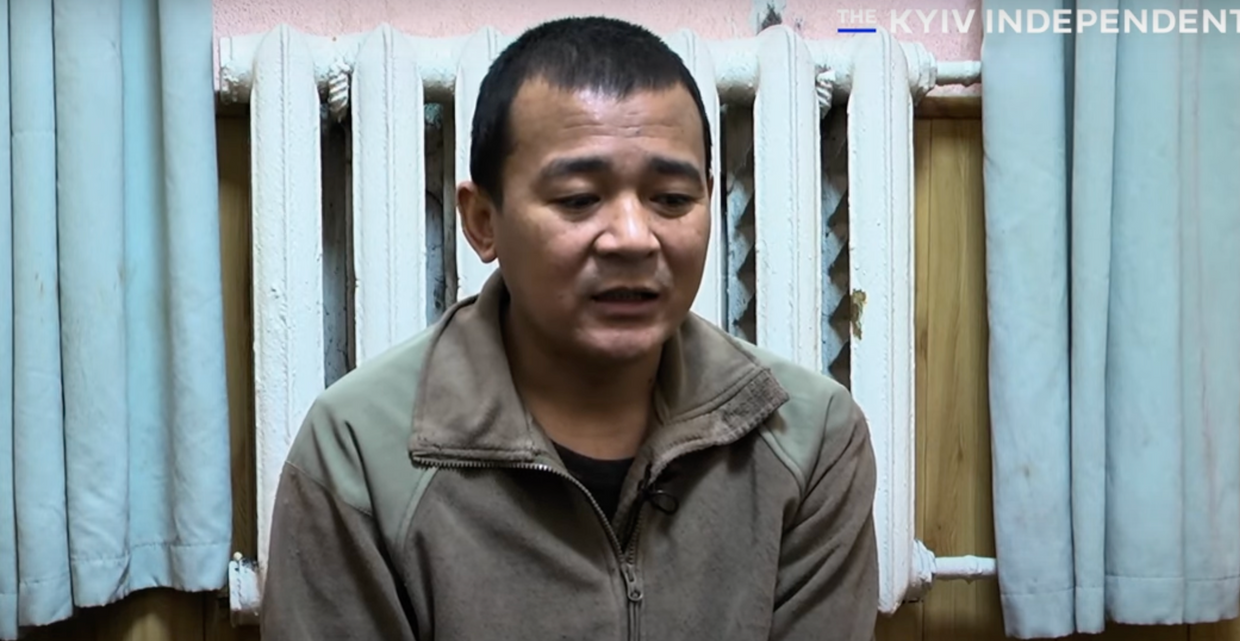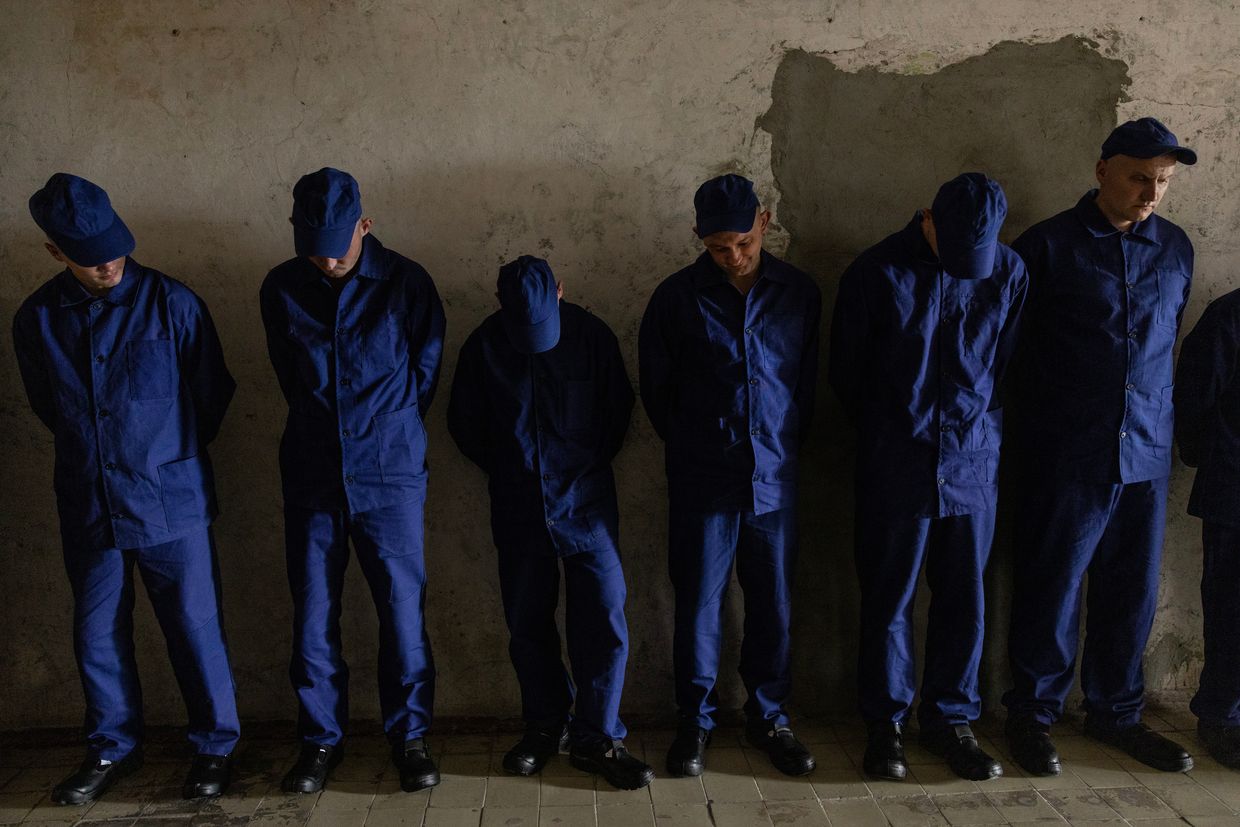Speaking at a press conference in Kyiv on May 10, President Volodymyr Zelensky rebuked the idea of a demilitarized zone in the war and emphasized the importance of first securing a ceasefire.
"We agreed that a full and unconditional ceasefire must begin on Monday, May 12, for at least 30 days. We jointly demand this from Russia, and we know we are supported in this by the United States," Zelensky said.
The announcement follows mounting fears that the two nuclear-armed countries were on the brink of engaging in another full-scale war.
Ukrainian media outlet ZN.UA reported on May 10 that their law enforcement sources confirmed an ongoing probe by the National Anti-Corruption Bureau into suspected embezzlement, money laundering and bribery.
Iran is preparing to send Russia Fath-360 short-range ballistic missile launchers, Reuters reported on May 9, citing Western security and regional officials familiar with the matter.
"Ukraine and all allies are ready for a complete unconditional ceasefire on land, in the air, and at sea for at least 30 days, starting as early as Monday," Ukraine's Foreign Minister Andrii Sybiha wrote.
U.S. President Donald Trump has acknowledged in private that Russia is difficult to negotiate with because they "want the whole thing," referring to Ukraine, the WSJ reported, citing sources familiar with the comments.
The visit marks Merz’s first trip to Ukraine, and the first time all four leaders have travelled there together.
A notice about the airspace closure was published on the U.S. Defense Department's NOTAM (Notice to Airmen) website on May 10, as cited by Ukrainian defense news outlet Militarnyi.
"As in the past, it is now for Russia to show its willingness to achieve peace," the EU's statement reads.
Kremlin spokesperson Dmitry Peskov rejected the idea of a 30-day ceasefire between Russia and Ukraine, claiming in an interview with ABC News on May 10 that it would be "an advantage" for Ukraine.
"Our involvement in the war was justifiable, and this belongs to our sovereign rights," North Korean dictator Kim Jong Un said. "I regard this as part of the sacred mission we must execute for our brothers and comrades-in-arms."
Over 3,000 Nepalis joined Russian army, captured POW estimates

Over 3,000 Nepalis may have joined the Russian army, a captured Nepali POW told Ukrainian authorities on video obtained exclusively by the Kyiv Independent.
Nepal's government previously estimated that up to 200 Nepalis are fighting for Russia. About 100 Nepalis have been reported missing and at least 14 have been confirmed killed while serving in the Russian army.
CNN reported in February, citing multiple sources, that 15,000 Nepalis had gone to fight for Russia.
"I guess around 3,000 to 4,000 Nepalis joined the Russian army," Rai Bikash, the captured POW said, after estimating that he saw around 200 Nepalis with his own eyes during his short time in the Russian military.
The POW said he joined the Russian army due to financial pressures, as he had debts of over $20,000. "If you get a job in the private sector (in Nepal), you will get a maximum of around $200" per month, the POW said.
"The only reason (Nepalese join the Russian army) is to make money...the one and only option is to go abroad and make money," Bikash said. The man was captured within one month, so was never paid.
The man said that Nepalis are promised a job away from the front line and given a contract that stipulates a 105 day training period, which he did not receive.
Russia is "recruiting all nationalities," the POW added.
Russia is known to have targeted men from countries including Cuba, Kazakhstan, and Somalia to fight in its army.
Radio Free Europe/Radio Liberty's Kyrgyz service reported on June 24 that a Kyrgyz national was sentenced to five years in prison for fighting for Russia in Ukraine, as the country's law forbids participating in conflicts on foreign territory.
Nepalese fighters have received significant media attention in recent months, as Nepalese law only permits its citizens to serve in the British and Indian armies.
Reuters reported in January that Nepal halted issuing foreign work permits for its citizens to work in Russia until further notice due to reports of its citizens being killed while fighting in Ukraine.
Over 800 people were issued work permits for civilian work in Russia in the past two years, Reuters said, citing official data.
Nepal urged the Russian government to stop recruiting Nepalese citizens into its army in December after at least six of its nationals were confirmed killed.

Most Popular

After 3 years of full-scale war in Ukraine, Europe announces plan to ban all Russian gas imports

Ukraine, Europe's ceasefire proposal includes US security guarantees, no recognition of Crimea, Reuters reports

Journalist Roshchyna's body missing organs after Russian captivity, investigation says

After Russia's deadly attack on Kyiv, Vance reposts denunciation of Zelensky

Ukrainian sea drone downs Russian fighter jet in 'world-first' strike, intelligence says
Editors' Picks

How medics of Ukraine’s 3rd Assault Brigade deal with horrors of drone warfare

As Russia trains abducted children for war, Ukraine fights uphill battle to bring them home

'I just hate the Russians' — Kyiv district recovers from drone strike as ceasefire remains elusive


